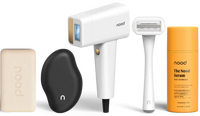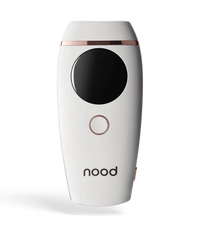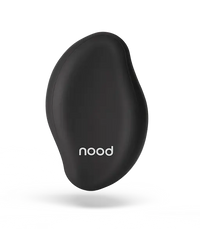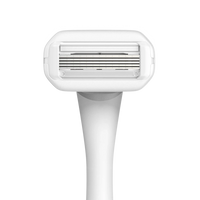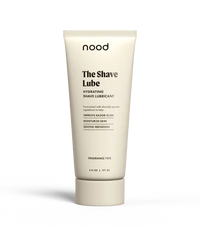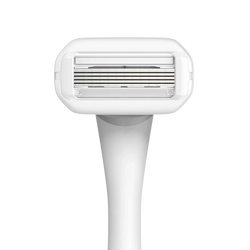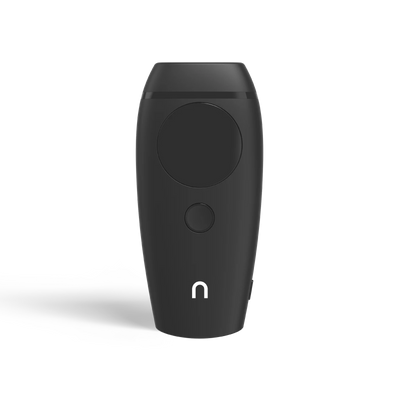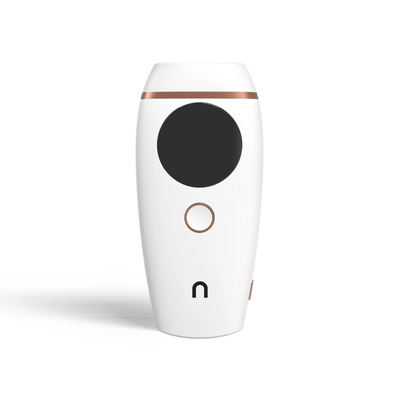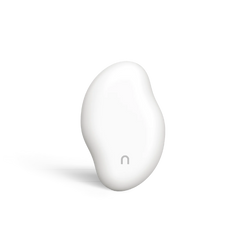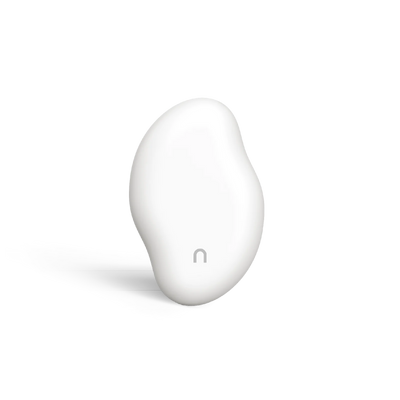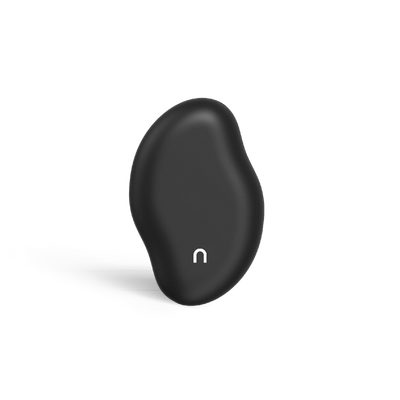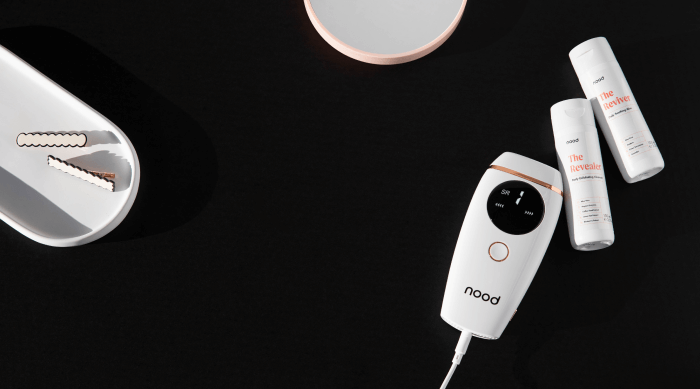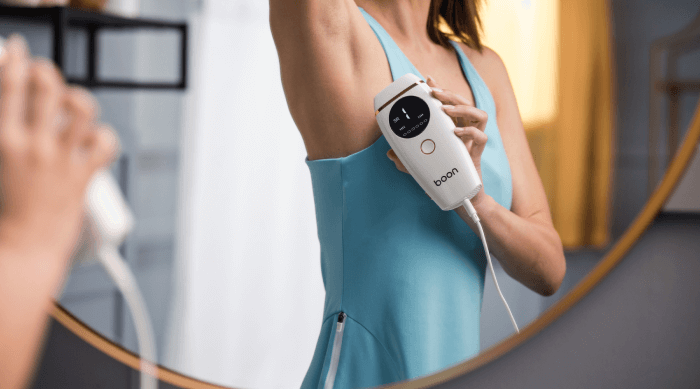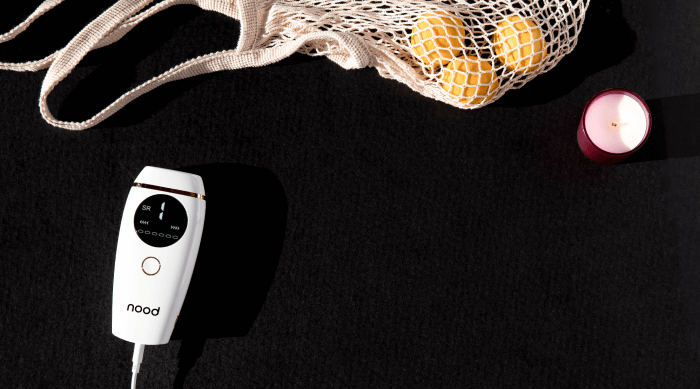![Laser Hair Removal Side Effects [Infertility Isn’t One!]](https://dropinblog.net/cdn-cgi/image/fit=scale-down,width=700/34248500/files/featured/Laser_Hair_Removal_Side_Effects_Infertility.png)
Laser Hair Removal Side Effects [Infertility Isn’t One!]
The vast majority of people who use laser hair removal experience few — if any — side effects. But that doesn't stop one persistent infertility myth.
Does laser hair removal affect fertility? There is no evidence that laser hair removal affects fertility.
It might feel sketchy to target unwanted hair growth in sensitive areas, but science doesn’t lie: Laser hair removal is one of the safest hair reduction methods out there.
Table of Contents
What are the side effects of laser hair removal?
Can laser hair removal cause infertility?
Laser hair removal does not cause cancer.
Does laser hair removal affect reproductive organs?
Laser hair removal doesn’t make you sweatier.
What are the side effects of laser hair removal?
More common side effects of laser hair removal are temporary skin irritation and redness in the treated area.
If you know you’re dealing with sensitive skin already, talk to your dermatologist about topical creams. At-home IPL users with sensitive skin types should invest in a good moisturizer and The Reviver as part of their skin-care routine.
In rare cases, laser hair removal may cause blisters, crusting, or scarring. Discoloration can happen, but it typically occurs when the wrong type of laser is used on darker skin tones.
Honestly, you’re more likely to see issues like ingrown hairs with waxing or shaving. (You do need to shave before laser or IPL sessions, but it’s worth it. We promise.)
Laser hair removal is also considerably less painful than waxing, where hair is pulled out at the root. If you’re using an at-home IPL device, you won’t feel discomfort as you go after those long-lasting, even permanent, results.
Can laser hair removal cause infertility?
Laser hair removal does not cause infertility, no matter how many sessions you have planned for your bikini line. Both professional and at-home devices work great on the coarse, dark hair in the bikini area, by the way. It’s one of the most popular small areas targeted for hair reduction.
Laser hair removal uses heated light energy to target the pigment at the hair follicle. Any laser hair removal treatment, whether at the salon or using an at-home device, penetrates just below the skin’s surface. It doesn’t get anywhere near your internal organs.
Does laser hair removal affect egg quality? Laser hair removal does not affect egg quality. A laser or IPL at-home treatment can’t get anywhere close to your ovaries or other body parts responsible for your eggs.
Other Laser Hair Removal Myths
We’ve taken care of the infertility myth. Let’s debunk a few more while we’re here.
Laser hair removal does not cause cancer.
It doesn’t increase your risk of skin cancer or any other cancer. The type and amount of radiation you’re exposed to in a session is non-ionizing radiation, which has not been linked to cell damage in any study.
Does laser hair removal affect reproductive organs?
Laser hair removal does not affect reproductive organs. These devices only penetrate a few millimeters into the skin.
This applies to men, too. If you’re worried your Brozilian will cause fertility issues down the line, fear not. And your secrets are safe with us.
Laser hair removal doesn’t make you sweatier.
You already know a laser can’t penetrate deep enough to affect any body part beyond the top layer of your skin. Changes you notice to your underarms after your treatments have more to do with the lack of hair in that area than your sweat glands.
Fans of laser hair removal targeting the underarms report it reduces body odor, another significant benefit. Unless you have a condition like hyperhidrosis that makes you sweat excessively, you shouldn’t notice any changes in how moist it gets under there post-treatment.
Follow us on Instagram if you like what you’re seeing.
View this post on Instagram
When is laser hair removal not recommended?
Laser hair removal is one of the safest, most effective hair removal methods out there, but that doesn’t mean it works for everyone:
- You have blonde, red, or gray hair. There isn’t enough pigment in those hair colors for a laser hair removal or IPL device to do its work. Very dark skin colors are typically a no-go, too, but some brands are making progress on ideal wavelengths in those cases.
- Your skin is healing. Avoid treatments if you have any open sores, and talk to your dermatologist if you have any skin conditions. Treat your skin right as part of your prep. We love The Revealer as our regular exfoliant and to kickstart shedding.
- You have a sunburn. If you have a sunburn, try to avoid sun exposure as part of your session prep until your skin has calmed down. It’s not as big a deal with IPL, but you’re probably not feeling your best anyway.
- You have epilepsy. The flashing lights and laser energy involved may trigger seizures in those with photosensitive epilepsy.
- You’re pregnant. There is no evidence that laser hair removal is harmful to pregnant women. We still say you should always check with your doctor before hair removal procedures.
For Safe, Permanent Hair Removal and Reduction, Choose Nood
At Nood, we took the best parts about laser hair removal and made them better. An at-home device is less expensive and equally effective to your in-salon sessions. Try The Flasher 2.0 today for a safe, convenient way to remove and reduce unwanted hair.
Sources
- A review of the adverse effects of laser hair removal
- A Systematic Review of Elective Laser Therapy during Pregnancy
- Lasers and intense pulsed light (IPL) association with cancerous lesions
- Hyperhidrosis
- Utilization of Laser Therapy During Pregnancy: A Systematic Review of the Maternal and Fetal Effects Reported From 1960 to 2017

